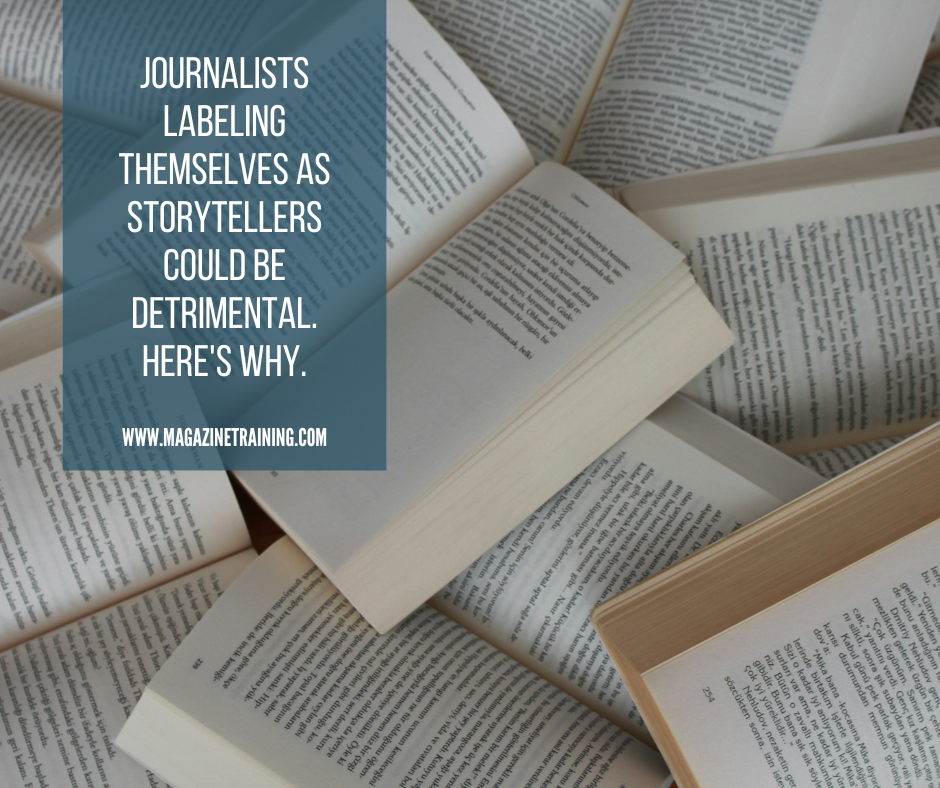
Journalists leave a bad impression with the public when they call themselves “storytellers,” a new study finds.
Researchers at the University of Cincinnati found that roughly 80% of the U.S.-based Twitter biographies that included “storyteller” belonged to journalists or former journalists, including reporters at The New York Times, BBC, CBS News, Al Jazeera, CBC News, the Associated Press, Fox News, NBC News, Washington Post, and several local television news affiliates. (Overall, most of the journalists using the “storyteller” identifier in their bio have an affiliation, either past or present, with television news.) The study’s authors — Brian Calfano, Jeffrey Layne Blevins, and Alexis Straka — also pointed to examples of “storytelling” in journalism classes and programs at universities in the United States.
“It’s a term meant to reflect the very real and creative process journalists go through in relating information to the public,” Calfano said. Its widespread use seems to “assume the public views the ‘storyteller’ label as a title or attribute deserving public trust and respect,” as the study notes. But — do they? Turns out the answer is, emphatically, no.
For the experiment, a national sample of 2,133 adults in the U.S. was presented with a news article about local zoning ordinances, a topic selected for being “political, but generally not partisan.” Half of the group was informed that the reporter “describes himself as a storyteller on his LinkedIn page.” (The authors chose LinkedIn because they feared invoking Twitter or Facebook could “trigger negative audience responses.”) The control group saw the same zoning story without the note about the reporter and all participants then took a survey.

The results were consistent and statistically significant. Participants who were told the reporter identified as a “storyteller” were more likely to agree that the news story was biased; that the news site sensationalized the story, trivialized aspects of the story, and failed to portray everyone fairly; and that the reporter himself was biased. (Not great!)
There’s a wide — and widening — partisan divide in who trusts media in America, with just 35% of Republicans reporting they have at least some trust in national news organizations. Calfano and Blevins, two of the co-authors, said finding that the term stirred negative reactions among Republicans and Democrats at similar rates was the most surprising part of their research process.
by Sarah Scire, International Journalists’ Network
Photo by Gülfer ERGİN on Unsplash
Related posts
Magazine Training International’s mission is to encourage, strengthen, and provide training and resources to Christian magazine publishers as they seek to build the church and reach their societies for Christ.

